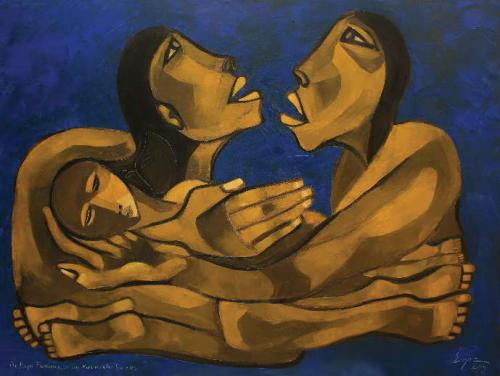Times of ethical resistance
From the outset, Francis has clearly assumed the role of a statesman, putting the problems of the world and society on his agenda, and self-criticism in the Church.
- Opinión

Recently a well-known secret came to the surface: the existence of corruption in FIFA, when the trial opened in the USA against high officials of this organisation, accused of implication in countess irregularities and criminal acts, according to investigations carried out by the FBI. Paradoxically, with breast-beating and moralizing speeches, corporations directly or indirectly connected to these dealings, such as the big media chains and their offshoots, have tried to capitalize this event. The same media that condemned the big figures of football when they had previously denounced such goings-on.
Without a doubt the resonance this event took on has to do with the fact that we are dealing with one of the most indicative expressions of globalization, in mercantile terms: football, one of the most popular sports in the world, which has the FIFA as its highest authority. FIFA has the status of a not-for-profit NGO, but its coffers hold amounts of money that compare with any of the big transnational corporations, while it is bigger than the majority of them in its capacity for political influence.
This is no exception. Looking just at recent events, revelations emerged not long ago of the participation of politicians and business executives, from several countries, in fraudulent financial movements operated by the HSBC.bank. And if we go on to the level of international organisations, it is enough to look at what is happening at the International Monetary Fund (IMF), whose last three heads have been investigated for acts of corruption.
These facts are not the result of chance. French sociologist Alain Touraine, author of the study The End of Societies, considers rather they are an expression of the control of financial capitalism that is nullifying the social constructions of the past. Because of this, he assumes that what is left is to rely on ethical resistance. So in this vein he underlines the presence of Pope Francis on the international scene, because of his trajectory and his vocabulary.
Unlike his predecessors, Francis, from the outset of his mission, has clearly assumed the role of a statesman, putting the problems of the world and society on his agenda, beginning with self-criticism with respect to the Church itself (reform of Vatican bodies, corrections in economic administration, punishment for acts of pedophilia, etc.) in order to open its doors.
Restoring the consistency between words and acts, his engagement with peace and the solution of international conflicts has taken on many expressions, from his denunciation that "perhaps one can speak of a third war, one fought piecemeal, with crimes, massacres, destruction", to his specific mediating actions (Israel and Palestine, the USA and Cuba, Syria, etc.).
The Pope has just published the Encyclical "Laudato si’, on Care for our Common Home" (1), calling for an ecological conversion. Last year, with his Apostolic exhortation Evangelii Gaudium, he presented his social thought and clearly stated his questioning of neoliberalism, advocating the primacy of human beings over capital and the need to recover ethical guidelines in personal and collective life. In this spirit, he promoted the World Meeting of Popular Movements -- Rome-Vatican, October 27-29, 2014 -- (2), to look together at "new ways of social inclusion". Since then a space for dialogue has remained open, as proposed in the words of Francis at that meeting: "Dear brothers and sisters, continue with your struggle, it is good for all of us". (3)
(Translated for ALAI by Jordan bishop)
1) http://w2.vatican.va/content/francesco/en/encyclicals/documents/papa-francesco_20150524_enciclica-laudato-si.html (18/06/2015).
2) Movimientos populares en el Vaticano: Articulando alianzas, http://www.alainet.org/es/active/78763 (13/11/2014)
3) NdE: A second World Meeting of Popular Movements with Pope Francis will be taking place in Santa Cruz, Bolivia this month (July 7-9).
Links:
João Pedro Stedile, Pope Francis and popular movements: The importance of a historical approach http://www.alainet.org/en/articulo/170716 (27/06/2015)
Juan Grabois, La exclusión en el capitalismo contemporáneo, http://www.alainet.org/es/articulo/170777 (30/06/2015)
* Article published in Spanish in edition 505 (June 2015) of ALAI’s magazine América Latina en Movimiento, titles “Francisco y los movimientos populares: Tierra, Techo y Trabajo”. http://www.alainet.org/es/revistas/170627
Del mismo autor
- Desafíos para la justicia social en la era digital 19/06/2020
- La CLOC fête ses 25 ans 19/06/2019
- CLOC 25 Años 12/06/2019
- Golpe de Estado en marcha 20/02/2019
- Assembling the Bolsonaro “myth” 15/01/2019
- El montaje del “mito” Bolsonaro 21/12/2018
- Internet, derivaciones y paradojas 01/11/2018
- La mediatización de la corrupción 14/03/2018
- En tiempos de post-verdad 14/08/2017
- Comunicación para la integración 01/06/2017
